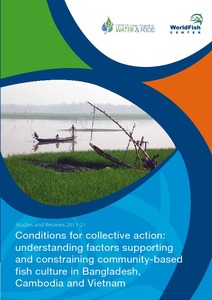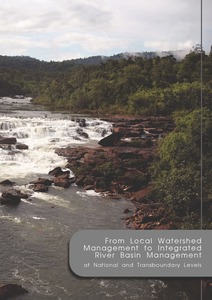Environment and poverty nexus is still a polemical issue. Some schools of thought claim that it is poverty that has the major effect on the environment, while another perspective suggests that the environment has more impact on the poor than vice-versa because the poor have no power to exploit…
Following the »Land Policy Declaration« from July 2009, the Royal Government of Cambodia henceforth has the unique opportunity to implement a land valuation policy by the Council of Land Policy. Land valuation, taxation and capacity building are indispensable elements of a land reform in…
Cooperatives, associations, partnerships, non-profit organizations (NPOs) and non-governmental organizations (NGOs) are core elements of the Social Economy. Social Economy as an economic and societal development approach could support the sustainable rural and environmental management in South…
Swidden (also called shifting cultivation) has long been the dominant farming system in Montane Mainland Southeast Asia (MMSEA). Today the ecological bounty of this region is threatened by the expansion of settled agriculture, including the proliferation of rubber plantations. In the current…
Debates and critiques around land policy often focus on the neo-liberal agenda of formalising land as alienable property, most notably through land titling schemes. Sometimes these schemes are posited against alternatives such as land reform and community land holding under common property…
OVERVIEW: Cambodia is a largely agrarian country that emerged from a history of political strife and instability into a period of steady economic growth. However, the country started from such a low base that even after a decade of growth averaging 7% per annum, GDP is only $650. Cambodia is…
This paper attempts to define the factors which determine emigration and rice doublecropping, i.e. rice cultivation on the same plot twice per year, by rural households in Cambodia, and investigates whether these decisions influence each other using data from a two-period panel survey of 231…
Common-pool resource management is a critical element in the interlocked challenges of food security, nutrition, poverty reduction, and environmental sustainability. This paper examines strategic policy choices and governance challenges facing Cambodia‘s forests and fisheries, the most…
This paper reports on outcomes and lessons learned from a 15-month initiative aimed at strengthening collective action to address natural resource conflict in Cambodia’s Tonle Sap Lake. Employing the Appreciation-Influence-Control (AIC) model of participatory stakeholder engagement, the…
The operation and longevity of hydropower dams are often negatively impacted by sedimentation. Forest conservation can reduce soil erosion, and therefore efforts to maintain upstream forest cover within a watershed contribute to the economic life span of a hydropower facility. The cost of forest…
Flood-prone ecosystems in South and Southeast Asia are traditionally farmed with deepwater rice followed by post-flood rice culture during the dry season. During the
flood season, the same land is inundated, creating an open-access water body subject to multiple uses by multiple users.…
Watersheds face a range of degradation challenges associated with human activities, such as pollution, deforestation and changes in sediment generation. The way they are managed has a profound cascading effect on natural resources and communities in the wider basin. Although watersheds play a…







